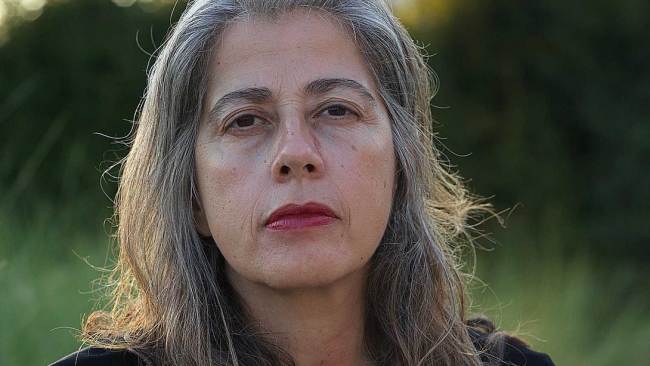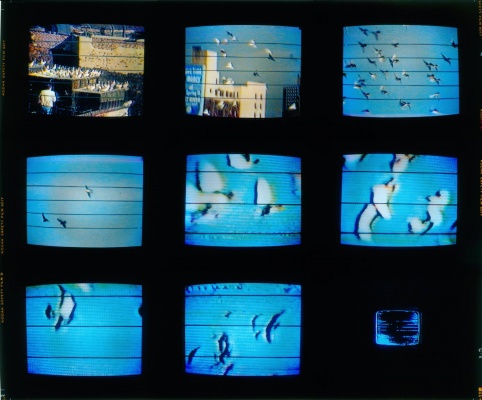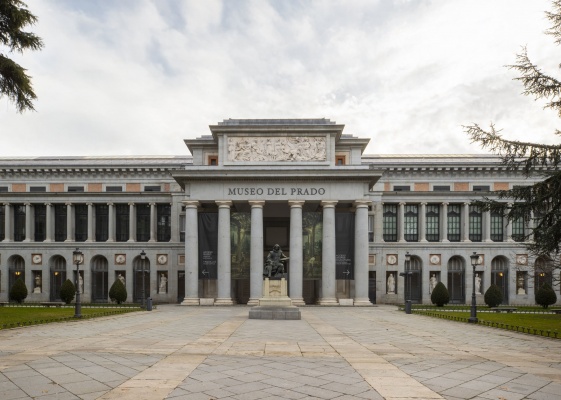Organizaciones con obra
Profesionales con obra
Descripción del Artista
Samuel Fosso. Nació en Kumba, Camerún, cerca de la frontera con Biafra, entonces un estado independiente de facto dentro de Nigeria. Creció en este país vecino hasta que tuvo que huir a Bangui en la República Centroafricana en 1972 a causa de la Guerra Civil de Nigeria.
Inicialmente se hacía autorretratos para terminar los rollos de las películas fotográficas, y las enviaba a sus padres y abuela, que se habían quedado en Nigeria. Al final, la realización de autorretratos se convirtió en un objetivo en sí mismo, y Fosso comienza a tomar conciencia de lo que puede expresar con su cuerpo. Se disfraza y caracteriza y se transforma para expresar sentimientos y emociones. Poco a poco va evolucionando y pasa de lo más personal a lo social, y más tarde al compromiso histórico, replicando a los líderes africanos.
Por encargo de la revista Tati, realiza una serie de autorretratos en los que refleja la sociedad africana de los 90 con un filtro muy personal: El jefe (que vendió África a los colonos), La americana emancipada en los años setenta o la Burguesa, aunque aparentemente coloristas y divertidas, las fotos tienen una carga social y política hasta ahora inexistente en el trabajo de Fosso.
Comienza entonces el compromiso histórico del artista que se refleja en su trabajo más reciente: African Spirits (Espíritus Africanos). Fosso se caracteriza como Malcom X, Martin Luther King, Mohamed Ali, Angela Davis (militante de las Panteras Negras), Sékou Touré (primer presiente de Guinea-Conakry), etc..., «figuras legendarias que han marcado el trayecto interlectual y político de África». Con estos autorretratos, Fosso crea representaciones icónicas y «remite a los sueños panafricanistas de periodos precedentes al de la independencia».
------------------------------------------------------------------------------------------
Samuel Fosso (born 17 July 1962) is a Cameroonian photographer who has worked for most of his career in the Central African Republic. His work includes uses self-portraits adopting a series of personas, often commenting on the history of Africa.
Fosso was born in Kumba, near the border with Biafra, then a de facto independent state within Nigeria. He grew up in this neighboring country until he had to flee to Bangui in the Central African Republic in 1972 because of the Nigerian Civil War.
Here he began to work as an assistant photographer when he was twelve, and a year later as a portrait photographer with his own studio in Bangui, 'Studio Photo Nationale'. Initially, he made self-portraits to fill up the unused parts of his photographic films. These photographs were destined for his mother, who had stayed behind in Nigeria. The making of self-portraits became an objective on its own for him.
For his self-portraits, he used special cloth backgrounds, in front of which he dressed up in costumes that varied greatly: authentic European costumes, African folk costumes, navy uniforms, karate keikogis, boxer shorts, and so on.
In 1994 Fosso became known abroad when he won the first edition of the African Photography Encounters in Bamako, Mali, the most important photography festival in Africa. He also won international awards, including the Prince Claus Award from the Netherlands in 2001.
Fosso's style is somewhat comparable with that of Diane Arbus, in that his self-portraits show a glimpse of our own humanity. Arbus's photography has been said to show that everyone has their own identity, that is to say what remains when we take away the rest. In contrast, Fosso's varying costumes are said to show that identity is determined partly as well by things over which humans lack control. His work has therefore also been characterized as having a disclosure of how humans can in fact create their own identity.
On 5 February 2014, amidst looting after sectarian violence, Fosso's home studio in Bangui, containing his complete archive, was ransacked. This was discovered by chance by photojournalist Jerome Delay, who, along with fellow photojournalist Marcus Bleasdale, and Peter Bouckaert (Emergency Director at Human Rights Watch), rescued the majority of its contents, estimated at 20,000 negatives and 150 to 200 prints, though Fosso's cameras were stolen. Fosso was in Paris at the time.
Awards:
1994: 1st Prize, Rencontres de la Photographie, Bamako, Mali
1995: Prix Afrique en Creations
2000: First Prize, photography category, Dak'Art - Biennale de l'Art Africain Contemporain, Dakar, Sénégal
2001: Prince Claus Award, Netherlands
2010: 1st Prize in Visual Arts Prins Bernhard Cultuurfonds
Text extracted from Wikipedia
https://en.wikipedia.org/wiki/Samuel_Fosso


Actualidad, 15 ene de 2019
Principales artistas y comisarios premiados en 2018
Por PAULA ALONSO POZA
Seleccionamos a una treintena de creadores y profesionales premiados entre enero y diciembre del año pasado. El 42% procede de España, país responsable de la mayoría de las convocatorias, el ...

Creación, 13 jul de 2018
PhotoESPAÑA 2018 ya tiene todos sus ganadores
Por GUSTAVO PéREZ DIEZ
Cabe destacar a Samuel Fosso y Leopoldo Zugaza por obtener las máximas distinciones concedidas por el Festival.

Grandes Eventos, 13 dic de 2017
PHotoESPAÑA celebrará su 20º aniversario dando 'Carta Blanca' a Cristina de Middel
Por GUSTAVO PéREZ DIEZ
De Middel presentará la propuesta curatorial "Players" con la que recupera la dimensión lúdica de la fotografía mediante una selección de autores que se han atrevido a explorar el medio ...

Exposición. 08 may de 2025 - 14 sep de 2025 / MNAC - Museu Nacional d'Art de Catalunya / Barcelona, España

Formación. 30 oct de 2025 - 11 jun de 2026 / Museo Nacional del Prado / Madrid, España